As part of our Muslim Climate Narratives project, we had the opportunity to interview Nouhad Awwad, Campaigner at Ummah for Earth, Global Outreach Coordinator at Greenpeace MENA, and a dedicated Environmental Activist. We discussed how her community is affected by climate change. As a young Muslim climate defender and nature advocate, we asked her perspective on the future of our climate and the pivotal role Muslims play in spearheading the fight against its rapid transformation.
Q: How has climate change affected your life or community?
Nouhad: Over the past few years, Lebanon has felt the impact of the climate crisis on its infrastructure, human health, and agricultural production. Extreme weather events have been noticeably more frequent and intense including heatwaves and droughts which directly affect the livelihoods of farmers. Wildfires have become a yearly occurrence causing damage to properties and human lives.
However, as a Lebanese citizen, I cannot separate my struggles from the challenges faced by other countries of the MENA region. Our struggles, how we are impacted by climate change, and the challenges we face meet on so many levels. Our region has contributed less than 5% of historic global emissions, our country less than 0.07%, yet it is bearing one of the heaviest costs of the climate crisis. Vulnerable communities are suffering from the impact of climate change disproportionately in other parts of the world. People’s health is affected by the high temperatures, food security is threatened by extended droughts and social inequalities are deepened even more. Our communities are mutually facing the loss of human lives, homes, and livelihoods due to the climate crisis.
What challenges does your community face in building climate resilience?
Nouhad: The MENA region is consistently facing compound crises due to conflicts, socio-economic challenges, disasters, and deteriorating living conditions. It seems like our resources, attention, and priorities are invested in facing these issues while building climate resilience seems to be trivial. Although climate justice and social justice are interconnected, they are often tackled as separate entities.
There is also a general lack of awareness about environmental and climate issues in some communities of the region, little representation of Muslim and regional voices in global climate conversations, and a lack of funds and resources dedicated to climate adaptation efforts and building resilience.
Define climate justice and share your outlook on the climate’s future.
Nouhad: Climate justice begins with the recognition that climate change has adverse and disproportionate impacts on different countries, communities, and groups, meaning the presence of disparities in terms of challenges yet also the ability to adapt. It entails the notion that the countries of the Global South do not have equal means to recover and adapt, so it is the idea of equitable distribution of both burdens and benefits. Climate justice ensures that the global community and those historically responsible for the climate crisis support the communities that are bearing its heaviest cost.
As for the future of the climate, it is only getting worse from here unless we act NOW. We need to make daily life changes on an individual basis, adopt green initiatives on a community level, work towards a socio-economic system that puts people’s well-being and sustainability over profit, advocate for national and regional climate policies and laws and finally make sure that the promises and decisions made in global climate conferences such as COP are fairly and urgently implemented.
What casual or innovative changes would you like the Muslim community to adopt for a just climate transition?
Nouhad: Every small action makes a difference. Most Muslim communities are located in the countries of the Global South, therefore they are heavily affected by the climate crisis and their voices should matter.
Stepping towards a just climate transition can work on so many different levels, including but not limited to:
- Personal and Individual: This can take the form of committing to an eco-friendly Ramadan, an eco-friendly Hajj, leading green initiatives in the community, conserving water and energy, and adopting sustainable habits in day-to-day life.
- Community: This can take the form of solarizing a Mosque or for example the active engagement of Imams as faith leaders in environmental action.
- The Inclusion of Muslim Voices in Global Climate Conversations: As they represent their unique experiences and solutions, they represent the voices of the most affected communities and provide a fresh perspective on climate-related issues. Allowing young Muslim climate champions to be part of the decision-making process paves the way toward a just climate transition. We, as Ummah for Earth, had a set of demands that were submitted to faith leaders during COP28 that are available on our website and can be adapted to different contexts.
Our work, at Ummah for Earth, is part of enabling this just transition. Our mission, projects, and initiatives represent their voices and aim to empower them to be at the forefront and the center of global climate action, and enable them to start making a change within their communities and beyond.
What do you think is the outlook of Muslim Americans/Canadians towards climate action and environmentalism? If negative, what are some ways we can collectively work towards improvement?
Nouhad: The outlook of Muslim Americans/Canadians towards climate action and environmentalism can vary widely depending on factors such as cultural background, education, socio-economic status, and personal beliefs. We do not believe that there is a negative outlook of any community in any place in this world. Some communities need more awareness to help them serve their people and protect the environment. While some Muslim communities may actively engage in environmental activism and view climate action as a moral imperative rooted in Islamic teachings, others may not prioritize these issues due to other pressing concerns or lack of awareness.
Nouhad Awwad is Campaigner at Ummah for Earth, Global Outreach Coordinator at Greenpeace MENA, and a dedicated Environmental Activist.

Muslim Climate Narratives
A multi-media storytelling project of Muslim Climate Watch showcasing powerful and inspiring stories from our fellow Muslims across the globe as they take us on a journey through their lives and communities, revealing their resilience and adaptability while facing the pressing challenges of climate change.
Do you have a climate story to tell?
Contact us today to be featured.


